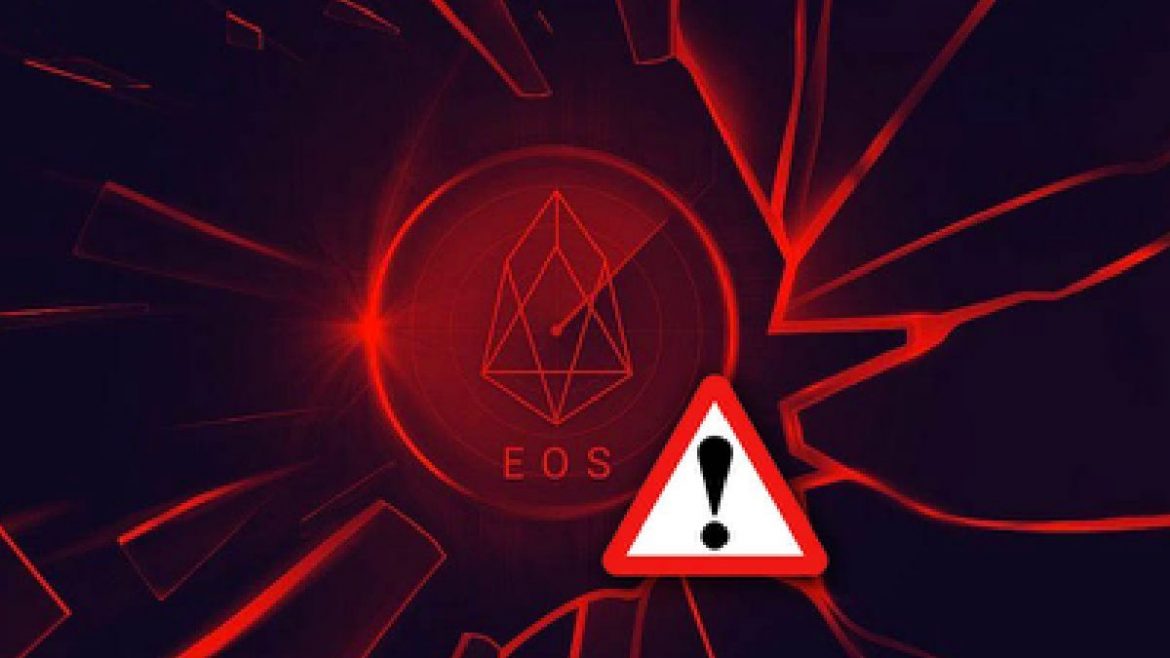A hacker hijacked the EOS network through gambling DApp, EOSPlay, and consistently won in games, accumulating 30,000 EOS which is equivalent to $120,553. How did this happen? The attacker filled blocks with EOS transactions which allowed him to win continuously. Filling the blocks made the network unusable; in essence, other users were not able to participate in the game and the hacker won thousands of EOS with a small stake of approximately 300 EOS.
Additionally, the cost of running CPUs increased due to fast filling blocks and most participants couldn’t afford to continue and they remained locked out while the system kept rewarding the attacker.
The cyber thief had 900,000 EOS allocated to CPU which ensured that anyone with a lower stake could not access the network or participate in the gambling process anymore. The attacker took full charge of the network and stole thousands of EOS in the process. The attack was far worse than just congestion in the network. A smart contract developer and creator of ERC-233 said the attacker seemed to explore several different smart contracts on the EOSIO network which is known for smart contract deployment. The community members realized that this weakness can still be further exploited by any hacker who stakes 300 or more EOS until the network is forked or patched. The owners of smart contracts hacked by the hijacker are unable to stop it because the network is congested and they are not able to stake enough EOS.
EOS is prone to such hacks and this is not the first time that the network suffered an attack. In February, the EOS network was hacked, leading to the loss of $7.7 million worth of EOS. The attacker leveraged a new Block Producer’s failure to update the network’s blacklist of attackers which allowed the attacker to successfully transfer 2.09 million EOS. In the meantime, this current attack is still ongoing and users are advised to stay away from EOSPlay.
The EOS network is based on the delegated Proof of Stake consensus mechanism. 21 block producers are the delegates and they earn 1% of annual inflation. Originally it was prohibited to buy votes, however, the ECAF was removed in April, so there is no longer a risk for block producers to buy votes. This also seems to be properly exploited. The landscape of the EOS block producers has since changed massively. The original block producers are no longer the top 21. Now, Block producers are joining the network together, choosing each other and trying to bribe the voters. There are rumors of corruption taking place on the EOS mainnet and players try to consolidate their positions in the game and take maximum advantage of it.
Does this mean that the EOS network has failed?
EOS does not operate as originally planned. Token holders should ideally pick block producers who add value to the network, however, whales participate together in cartels and vote for each other. Everyone who participates on the EOS network can vote for their block producers. Each participant has up to 30 votes and many people who don’t know better often delegate their votes to a proxy. Though there are several fairer models, it is yet to be seen whether they can be implemented on the mainnet. EOS will undergo a major technical update in 10 days and DApp operators will be able to delegate resources to their users.
Disclaimer
Content provided by CryptoTraderNews is for informational purposes only, and should not be construed as legal, tax, investment, financial, or other advice. All information is of a general nature. As always, there is risk with any investment. In exchange for using our products and services, you agree not to hold CryptoTraderNews Pro, its affiliates, or any third party service provider liable for any possible claim for damages arising from decisions you make based on information made available to you through our services.
EOSPlay Hacked With Over $120K Stolen
previous post
